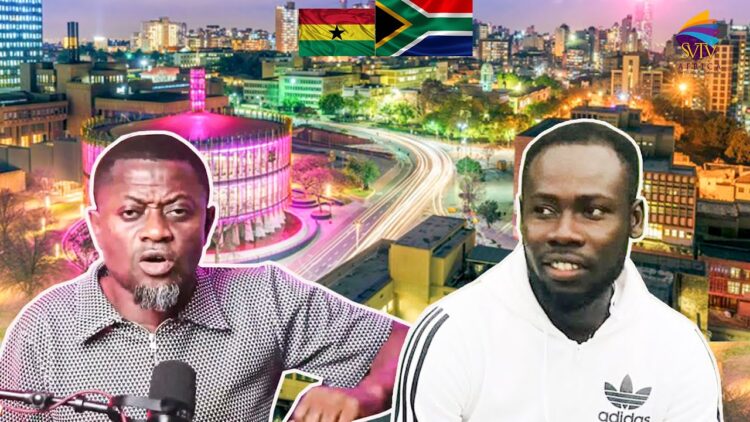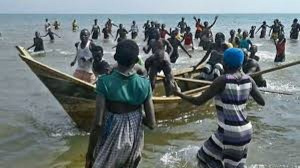Mr. Peter Owusu, a Ghanaian footballer, has lived in South Africa for about 3 to 4 years. He first began traveling there in 2016 with the hopes of advancing his football career. A former player for Liberty Under-20, Peter explained In an interview with DJ Nyaami on SVTV Africa’s Daily Hustle Worldwide show that, he had talent and connections in places like Apenkwa, Cape Coast, and Aaha Ladies, and came to South Africa after being encouraged by his brother. Unfortunately, things didn’t go as planned.
“I came with the dream of joining a football team, but after the tryouts, I wasn’t selected. It was a tough reality check. We lacked proper preparation and maturity before making such a big move,” he shared.
Peter observed that many young Ghanaian players are deceived by flashy images of successful footballers driving big cars. They fall for fake promises from agents who claim they can secure teams in places like Dubai, Turkey, or South Africa. These agents often charge between $2,000 and $4,000 for trials (justifiers), but once the players arrive, they only get two weeks to prove themselves—and most fail.
“Most of us got tricked. I know people who came for trials, and the agents just disappeared. Some players became stranded. Others, out of desperation, started working in salons or doing odd jobs,” he added. “Some gave up football completely, especially after age caught up with them. A good number of them lacked proper coaching, and one very talented guy I knew even ended up addicted to drugs after things fell apart.”
According to Peter, many Ghanaian salon workers in South Africa today are failed footballers. They originally came with high hopes of turning pro but ended up struggling to survive.
Peter runs a small soccer academy in South Africa and tries to support some of these stranded players by giving them shelter temporarily. He believes it’s important for aspiring footballers to also learn a trade or skill.
“South African football is far ahead of Ghana’s. Their systems are developed, facilities are better, and players are paid well. In Ghana, there’s too much quantity and not enough quality. Clubs are many, but not strong enough to properly train or support players.”
He noted that while some Ghanaian players are doing well abroad—like one friend playing in Kosovo earning $8,000–$10,000 and even driving a car—many others remain stuck, struggling due to poor preparation, false promises, and a broken system back home.
Watch The Video Below:

















